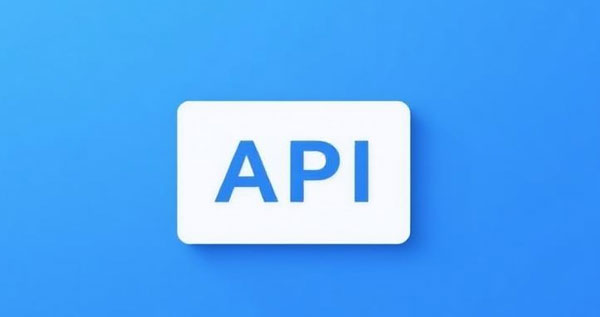Multi-Regional SEO Monitoring: The Best Proxy IP Rotation Solutions
1. Introduction
In today’s globalized market, businesses need multi-regional SEO monitoring to obtain search result data from different locations. However, search engines personalize results based on user IP addresses, making it difficult to get an accurate representation of rankings in various markets. Additionally, frequent keyword ranking queries may trigger search engine anti-crawling mechanisms, leading to IP bans. Therefore, implementing a proxy IP rotation strategy is essential for improving SEO monitoring efficiency and accuracy.
2. Challenges in Multi-Regional SEO Monitoring
Geographical Differences in Search Results: Search engines like Google, Bing, and Baidu adjust search results based on the user's IP location. Even with the same keywords, rankings can vary significantly across different countries and cities.
IP Access Restrictions: Frequent SEO data queries may be flagged as abnormal behavior by search engines, resulting in IP bans or search limitations.
Inefficiency of Manual IP Switching: Manually changing VPNs or proxy IPs is cumbersome and reduces automation in SEO monitoring.
3. Role and Selection of Proxy IPs
Understanding Proxy IPs: Proxy IPs can hide real IP addresses and simulate access from different locations, enabling SEO monitoring tools to retrieve accurate search results worldwide.
How to Choose the Right Proxy IP:
Residential Proxies vs. Data Center Proxies: Residential proxies originate from real user networks and are more suitable for search engine queries, offering higher stability. Data center proxies provide faster speeds, making them ideal for bulk data scraping and SEO monitoring.
Static IPs vs. Rotating IPs: Static IPs are ideal for long-term SEO tracking, while rotating IPs help prevent bans by frequently changing IP addresses.
Free vs. Paid Proxies: Free proxies are often slow and unreliable, whereas paid proxy services offer secure and stable solutions.
4. Best Proxy IP Rotation Solutions
Solution 1: Using Proxy IP Service Providers (LuckData)
LuckData offers high-quality proxy IP solutions suitable for SEO monitoring, brand protection, market research, and more.
Multiple Proxy Options: Provides residential proxies, data center proxies, and rotating residential proxies to meet different SEO needs.
Global Coverage: Over 120 million residential proxy IPs, supporting location targeting in 200+ countries and regions, bypassing geographical restrictions.
High Efficiency & Stability: 99.99% uptime with a rapid response time of approximately 0.6 milliseconds, ensuring timely and accurate SEO data retrieval.
Flexible Pricing: Offers various pricing plans, such as data center proxies at only $12 for 5GB/30 days, making it highly cost-effective.
Developer Support: Supports HTTP/HTTPS protocols and provides integration solutions for multiple programming languages, including Python, Java, Go, and PHP, enabling quick deployment.
Solution 2: Building a Private Proxy IP Pool
Companies can lease multiple cloud servers (e.g., AWS, Google Cloud) and configure different regional IPs to create a proprietary proxy pool. While this method offers flexibility, it is costly and requires significant maintenance, making it suitable for enterprises with high-security demands.
Solution 3: Automated Proxy Rotation with Scripts
Combining Python with Selenium/Requests enables automated proxy switching, enhancing the efficiency of SEO monitoring. For example:
import requestsproxyip = "http://Account:Password@ahk.luckdata.io:Port"
url = "https://api.ip.cc"
proxies = {
'http': proxyip,
'https': proxyip,
}
data = requests.get(url=url, proxies=proxies)
print(data.text)
Solution 4: API Polling & Timed Proxy Switching
Using API requests, businesses can set up scheduled proxy IP changes, such as switching every five minutes to avoid IP bans. Additionally, randomly rotating proxies from different regions ensures more accurate SEO monitoring.
5. Integration & Optimization of SEO Monitoring Tools
SEO Tools and Proxy IP Integration:
Tools like Ahrefs, SEMrush, and Scrapebox can be combined with proxy IPs for cross-regional ranking monitoring and competitor analysis.
LuckData's proxy services enhance the stability and accuracy of SEO tracking.
Custom SEO Crawling Scripts:
Using Python + Scrapy with proxy IPs to scrape Google SERP data.
Implementing random User-Agent switching and IP rotation to simulate real user behavior, improving SEO monitoring accuracy.
Data Cleaning & Analysis:
Filtering out erroneous data caused by unreliable proxy IPs to improve the reliability of SEO decision-making.
Leveraging AI to analyze SEO monitoring data and optimize strategy insights.
6. Precautions & Risk Mitigation
Avoid Triggering Search Engine Anti-Crawling Mechanisms: Adjust query intervals and simulate normal browsing behavior to prevent bans from Google, Baidu, and other search engines.
Choose Compliant Proxy Services: Ensure that the selected proxy IPs come from legal sources. LuckData provides residential proxies that adhere to business ethics and privacy protection standards.
Regularly Monitor Proxy IP Availability: Use API testing to verify the stability of proxy IPs and prevent SEO monitoring disruptions due to inactive proxies.
7. Conclusion
Multi-regional SEO monitoring relies on proxy IPs to bypass geographic restrictions and obtain accurate search results. Professional proxy providers like LuckData offer stable and efficient solutions, significantly enhancing SEO tracking automation and accuracy. Businesses can choose the appropriate proxy rotation strategy based on their needs to achieve precise market analysis, optimize SEO strategies, and maintain a competitive edge.




